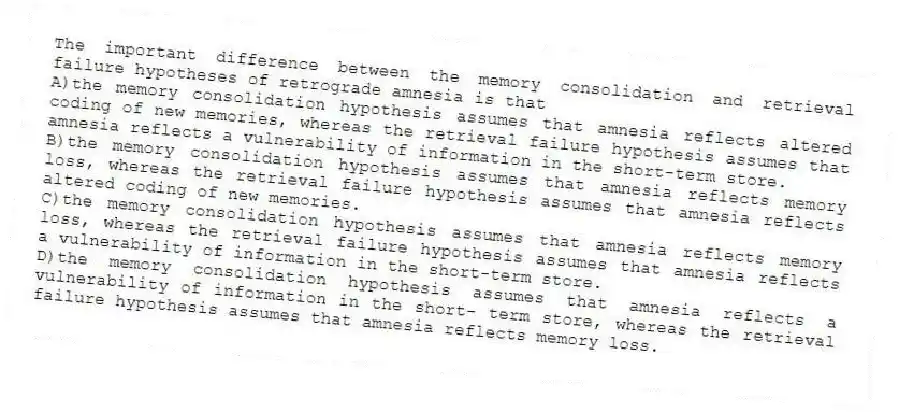
The important difference between the memory consolidation and retrieval failure hypotheses of retrograde amnesia is that
A) the memory consolidation hypothesis assumes that amnesia reflects altered coding of new memories, whereas the retrieval failure hypothesis assumes that amnesia reflects a vulnerability of information in the short-term store.
B) the memory consolidation hypothesis assumes that amnesia reflects memory loss, whereas the retrieval failure hypothesis assumes that amnesia reflects altered coding of new memories.
C) the memory consolidation hypothesis assumes that amnesia reflects memory loss, whereas the retrieval failure hypothesis assumes that amnesia reflects a vulnerability of information in the short-term store.
D) the memory consolidation hypothesis assumes that amnesia reflects a vulnerability of information in the short- term store, whereas the retrieval failure hypothesis assumes that amnesia reflects memory loss.
Correct Answer:
Verified
Q44: Reminder treatments can increase responding that is
Q45: Memory priming involves
A)presenting a retrieval cue and
Q46: Which of the following can serve as
Q47: Retrospective coding refers to memory of
A)spatial cues.
B)events
Q48: Describe the delayed matching to sample task.What
Q50: When rats and humans were both required
Q51: If a hamster in a radial maze
Q52: After three righthand turns, Sally remembers that
Q53: When he first begins shopping, Peter is
Q54: Which of the following is not an
Unlock this Answer For Free Now!
View this answer and more for free by performing one of the following actions

Scan the QR code to install the App and get 2 free unlocks

Unlock quizzes for free by uploading documents